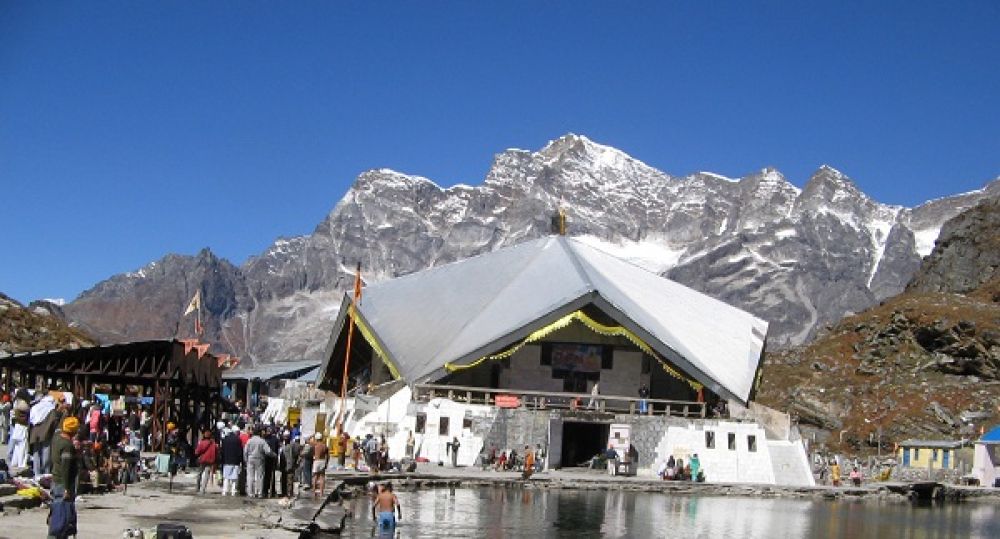

Hemkunt Sahib, also known as Sri Hemkunt Sahib, is a prominent Sikh gurudwara nestled amidst the Himalayas at an altitude of 4,633 meters (15,200 feet) above sea level in Chamoli district, Uttarakhand, India. It is dedicated to the tenth Sikh Guru, Guru Gobind Singh Ji, and is a sought-after site for thousands of devotees and tourists who swarm to this location each year to pay homage and seek spiritual solace.
The history of tourism in Hemkunt Sahib is intertwined with the Sikh religion and the discovery of the site itself. It is believed that Guru Gobind Singh Ji meditated at this picturesque locale in his previous life, as mentioned in his autobiography, "Bachitra Natak." Yet, it was only in the twentieth century that the location of Hemkunt Sahib became widely recognized.
The identification and establishment of Hemkunt Sahib as a pilgrimage site are credited to the efforts of Sikh soldier and scholar Bhai Vir Singh and an explorer, Modan Singh, who, in the 1930s traced the geographical description mentioned in the scriptures to locate the site. Since then, development projects have been carried out to provide infrastructure for pilgrims, such as the construction of the gurudwara and a path to reach it.
The challenging trek to Hemkunt Sahib became a kind of spiritual journey for many Sikhs, and the location's pristine beauty also attracted trekkers and nature enthusiasts. Over the years, it has become a blend of religious pilgrimage and nature tourism.
Eco-Friendly Initiatives: Recently, there has been a push towards sustainable tourism practices in and around Hemkunt Sahib. Authorities have implemented measures to reduce environmental impact by introducing eco-friendly procedures due to the sensitive ecosystem of the region.
Adventure Tourism: Alongside pilgrimage tourism, there has been a surge in adventure tourism in the area, with trekkers and mountaineers coming from all over to explore the rugged terrain and the breathtaking vistas of the Valley of Flowers National Park nearby.
Improved Access: The local government has taken steps to improve access to Hemkunt Sahib through better transportation facilities and accommodation options. The trekking path has been upgraded, and regular helicopter services are also available now for devotees not able to undertake the arduous journey on foot.
Hemkunt Sahib is open to visitors generally from May to October, after which it becomes inaccessible due to snow. The months of July and August see peak pilgrim activity because of the favorable weather and the concurrent pilgrimage season of the Valley of Flowers.
Regardless of the physical challenges imposed by the altitude and terrain, Hemkunt Sahib continues to inspire and attract visitors in large numbers. Its history, spiritual significance, and the aura of the majestic Himalayas combine to make it a unique and deeply revered destination for both the devout and the adventurous.